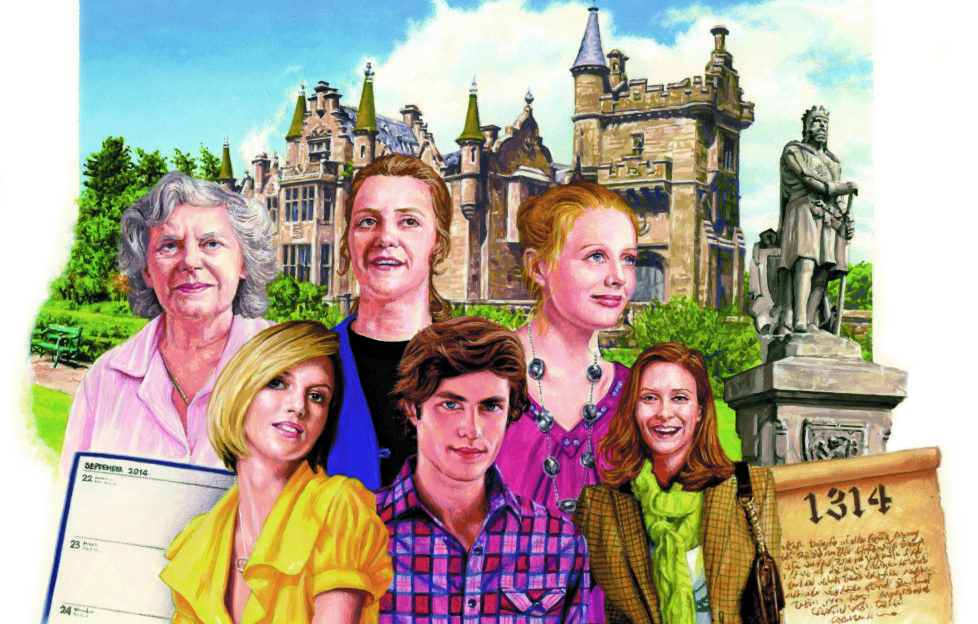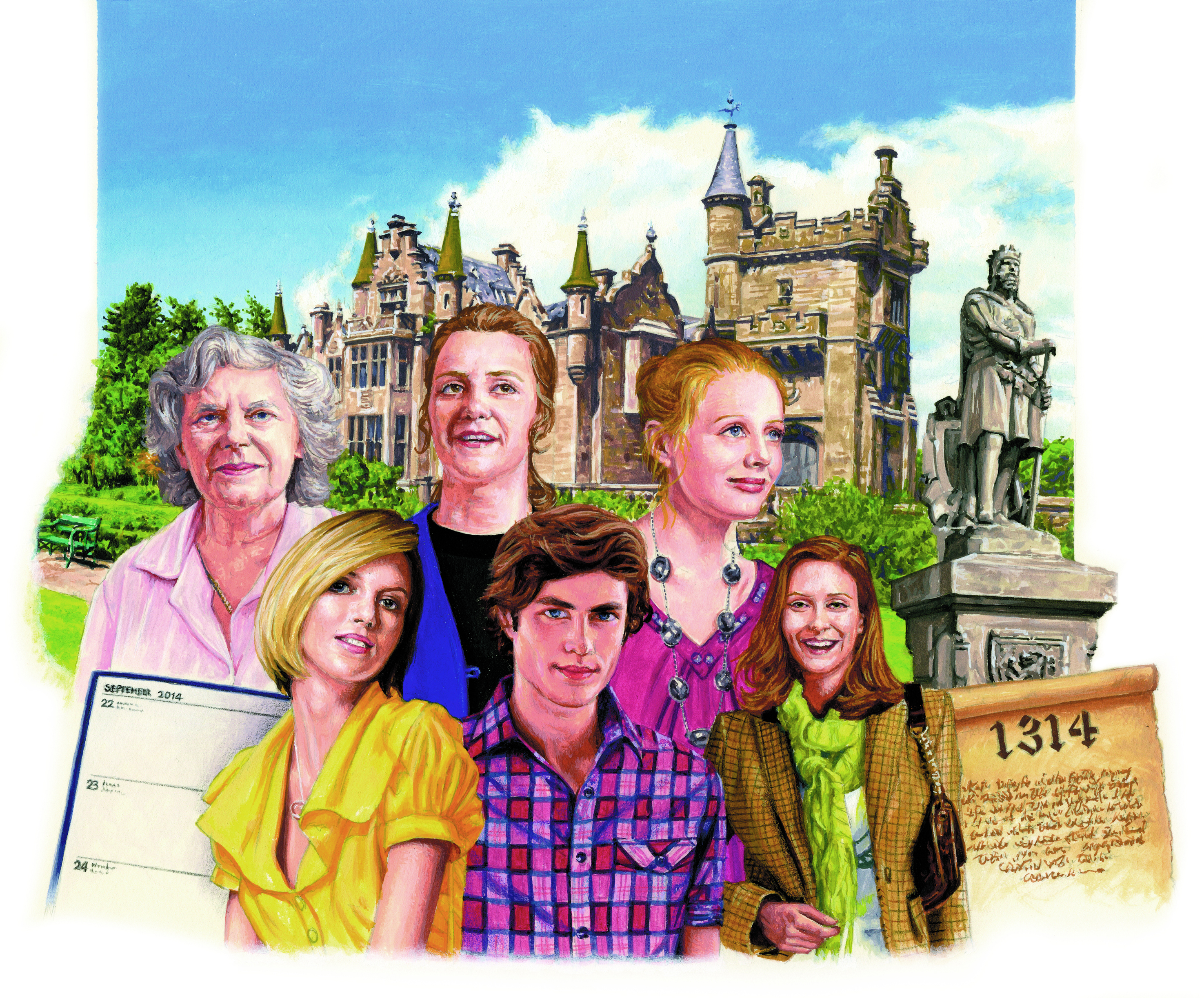Echoes From The Past – Episode 30

Echoes From The Past by Joyce Begg
« Previous Post- 1. Echoes From The Past – Episode 01
- 1. Echoes From The Past – Episode 30
Mirin had to push against the press of people trying to get in, and in doing so, she almost missed the man and boy coming the other way. The boy was Murdo, and the man with him was some sort of cleric. Then she saw that he wore the black hooded habit of the Dominican friar.
It was Friar Petrus, last seen in the sheriff’s courtroom, the man she feared had accused her of witchcraft. He had not spoken directly to her on the subject, either in or out of the court, but she dreaded his sombre looks, his fathomless eyes, his dark intensity. What could it mean that he was here with Murdo? Was it accident, or was there another explanation?
“Murdo! I’m here!” she cried out.
Murdo turned at the sound of her voice, and barged his way through the crowd to get to her. He was twelve years old, almost a man, but he hugged his sister to him as a child might.
“Friar Petrus said I should stay at the abbey where I would likely be safe, but I wanted to come home. I wanted to be with you and Faither. I wanted –”
“Of course, Murdo. I was coming to get you. I’m right glad you’re here.”
She looked up to where Friar Petrus was, and found him drawing away again. Had he really gone to get Murdo, or had he been delegated to tell the monks what was happening and found himself in charge of the boy? There was something of a mystery here. But before she could ask him, the friar turned away and melted into the crowd.
“Come away home, Murdo. Faither will be relieved, I can tell you. And there’s so much to do! Come on.”
As they turned their backs on the gate, the Provost’s men closed up the gap, and they could hear their voices shouting, “In or out. This is your last chance.”
She shuddered at how close she had come to being excluded.
Over the next few days, the Scottish army gathered in the forest of New Park, watched over by King Robert. Not as many men as he’d like, and some still to join them, but they were more or less ready. The King strode among them, shaking hands and smiling encouragement.
He was wearing what passed for a crown, a simple enough coronet, but clear for all to see. He was here, he was in charge, and he was not going away. He would lead them on to glory, and their people would remember them for ever.
And in another field, some way off, the English army gathered, numberless and well armed, confident and clever. King Edward sat in his tent surrounded by his officers, certain of victory before the battle even started. For how could any meagre provincial gathering of men and boys, whoever they were and wherever they were hiding, take on the might of the English? The result was a foregone conclusion.
On the castle ramparts, with a splendid view of the surrounding area, Sir Philip Mowbray, commander of the castle, was not so certain.














